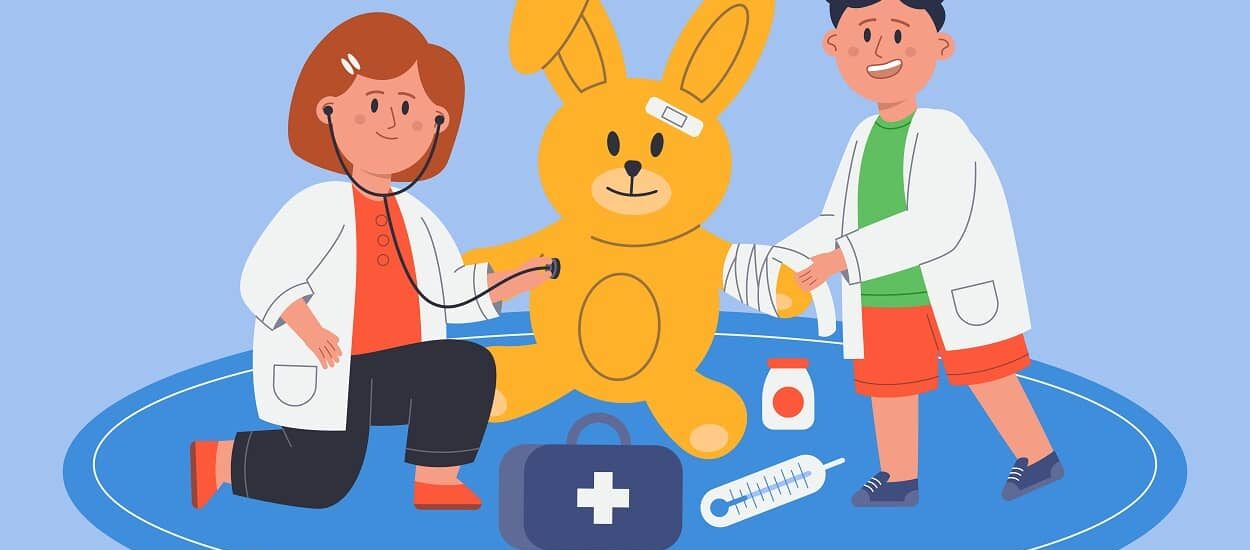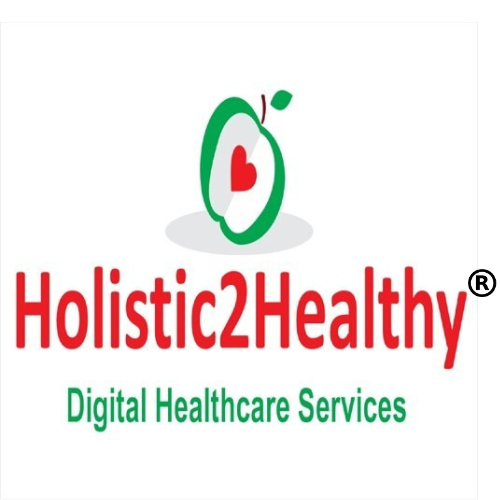The importance of health checkups for children cannot be overemphasized. A health checkup helps to ensure that a child is growing and developing normally. It also allows for the early detection of any health problems that a child may have.
A holistic health checkup goes beyond just the physical aspects of a child’s health. It also includes a psychological assessment and a review of the child’s social and emotional wellbeing. This type of checkup is important in order to get a complete picture of a child’s health.
There are many benefits of a holistic health checkup for children. First, it helps to identify any health problems that a child may have. Second, it allows for the early detection of any potential problems. Third, it helps to ensure that a child is developing normally. Fourth, it helps to assess a child’s social and emotional wellbeing. Finally, it helps to create a plan for the child’s future health.
Also Read:- Helping Children How To Overcome Fears: A Guide for Parents
1. What is a holistic health checkup for Children?
A holistic health checkup is an assessment of a child’s overall health and wellbeing. It includes physical, psychological, and social and emotional assessments.
A child’s physical health is assessed to check for any health problems that the child may have. This typically includes a physical exam, including a vision and hearing screening.
The psychological assessment involves looking at the child’s cognitive and behavioral development. This includes an assessment of the child’s memory, attention span, and problem-solving skills.
The social and emotional wellbeing of a child is also assessed. This includes looking at a child’s communication skills, relationship with peers, and ability to manage emotions.
The purpose of this assessment is to get a full picture of a child’s health and wellbeing. It helps to identify any potential health problems and to create a plan for the child’s future health.
2. Why is a holistic health checkup important for children?
A holistic health checkup is important for children because it provides a comprehensive assessment of their physical, mental, and emotional health. It helps to identify any potential health issues that may be present and can be used to create a plan for the child’s future health and wellbeing.
A holistic health checkup can also detect any risk factors that may affect a child in the future. Early detection of these risks can help to prevent them from developing into more serious issues and can be addressed through preventative measures.
Finally, a holistic health checkup can provide parents and caregivers with the information they need to ensure their child is developing healthily. It can also be used to create a plan of action to ensure the child is getting the nutrition, exercise, and emotional support they need.
A holistic health checkup is very important for a child to develop skills such as:
- Emotional Intelligence: This skill involves recognizing and understanding one’s own emotions and the emotions of others. It helps children manage their feelings, develop empathy, and build positive relationships.
- Confidence: Building self-confidence enables children to believe in their abilities, take risks, and handle challenges with resilience. Encouraging their strengths, praising their efforts, and providing a supportive environment are essential for fostering confidence.
- Social Ability: Social skills involve effective communication, cooperation, and the ability to interact positively with others. Children who develop strong social skills are more likely to build healthy relationships, resolve conflicts peacefully, and work well in teams.
- Empathy: Empathy is the ability to understand and share the feelings of others. Teaching children to consider different perspectives, be compassionate, and demonstrate kindness helps them develop empathy and build meaningful connections with others.
- Fine and Gross Motor Coordination: Fine motor skills involve precise movements of the hands and fingers, while gross motor skills involve large muscle movements. Developing coordination in both areas is crucial for tasks like writing, playing sports, and engaging in various physical activities.
- Responsibility: Instilling a sense of responsibility in children teaches them to be accountable for their actions and take care of their belongings, tasks, and commitments. Responsibility helps them develop a strong work ethic and become independent individuals.
- Creativity: Nurturing creativity allows children to express themselves, think outside the box, and explore new ideas. Encouraging imaginative play, providing art supplies, and supporting their interests can foster their creativity.
Remember, every child is unique, and they develop skills at their own pace. It’s important to provide a supportive and nurturing environment that allows children to explore, learn, and grow while celebrating their individual strengths.
3. What are the benefits of a holistic health checkup for children?
A holistic health checkup for children can offer many benefits, including:
- Better overall health and wellbeing: A holistic health checkup can identify any potential health issues and help to create a plan for the child’s future health and wellbeing.
- Improved nutrition: A holistic health checkup can assess a child’s dietary needs and recommend changes to ensure they are receiving the nutrition they need.
- Exercise and physical activity: A holistic health checkup can assess a child’s level of physical development and recommend changes or activities that can help with their physical development.
- Mental and emotional wellbeing: A holistic health checkup can assess a child’s mental and emotional wellbeing and provide recommendations or advice that can help to improve their emotional wellbeing.
- Early detection of risk factors: A holistic health checkup can detect any potential risk factors that may affect a child in the future, such as obesity or poor nutrition. Early detection of these risks can help to prevent them from developing into more serious issues.
All in all, a holistic health checkup can provide parents and caregivers with the information they need to ensure their child is developing healthily. It can also provide a plan of action to ensure the child is getting the nutrition, exercise, and emotional support they need.
4. Early Detection of Potential Health Issues:
Prevention is always better than cure, and a holistic health checkup for children plays a crucial role in early detection of potential health issues.
Regular screenings for conditions such as anemia, vitamin deficiencies, allergies, and hormonal imbalances can help identify problems before they become serious. By catching these issues early, appropriate interventions can be implemented to mitigate their impact on a child’s health and development.
A holistic health checkup for children includes a thorough evaluation of their physical health. This examination goes beyond basic measurements like height and weight and includes detailed assessments of organ systems, sensory functions, and developmental milestones.
By detecting any underlying medical conditions or developmental concerns early on, prompt intervention can be provided, leading to better health outcomes in the long run.
5. Identification of Developmental Delays
Children go through various stages of physical and cognitive development. Holistic health checkups monitor these milestones, ensuring that children are meeting the necessary benchmarks for their age. From tracking growth patterns and motor skills to assessing speech and cognitive abilities, regular checkups provide insights into a child’s development.
Any potential delays or issues can be promptly identified, leading to appropriate interventions such as early interventions, therapy, or specialized care.
Holistic health checkups also focus on assessing a child’s developmental milestones, such as motor skills, speech, and cognitive abilities. Identifying any delays in these areas at an early stage allows for timely interventions, such as speech therapy, occupational therapy, or early childhood intervention programs.
Addressing developmental delays promptly greatly enhances a child’s chances of reaching their full potential.
6. Mental and Emotional Well-being
While physical health is crucial, a holistic health checkup also acknowledges the significance of mental and emotional well-being in a child’s overall health. These checkups provide an opportunity to evaluate a child’s emotional development, social interactions, and behavior. They allow healthcare professionals to identify signs of stress, anxiety, depression, or other mental health concerns.
Early detection and intervention can prevent the escalation of these issues, ensuring that children receive the support they need to thrive.
7. How often should children get health checkups?
A holistic health checkup should be done at least once a year for children, but more frequent checkups may be necessary for some children depending on their health and any underlying medical conditions. It can be helpful to have a checkup every 6 months for children who are younger than 12 years old.
For older children, it is recommended to have a checkup at least once a year to ensure that they are healthy and that any underlying medical conditions are identified and treated if necessary. It is also important to ensure that the child gets more frequent checkups if any changes in their health or wellbeing occur.
It is also important to keep in mind that different children may require different checkup frequency. For instance, children who have certain medical conditions may need more frequent checkups than other children.
It is important to consult with a pediatrician or healthcare provider about the frequency of checkups for a particular child.
8. Conclusion
A holistic health checkup for children is a comprehensive approach to their well-being, focusing on physical, mental, and emotional aspects of health. By adopting a proactive approach to their well-being, parents can ensure that their children receive comprehensive healthcare and necessary interventions when required.
Regular checkups empower parents with knowledge, enable early detection of health issues, and promote preventive care. By prioritizing their children’s holistic health, parents can lay a solid foundation for a lifetime of well-being and success.
By detecting potential health issues, identifying developmental delays, addressing mental health concerns, and promoting healthy lifestyle choices, these checkups play a vital role in nurturing children’s overall health.
Investing in holistic health checkups for our children is an investment in their future, ensuring they have the best possible foundation for a healthy and fulfilling life.
FAQs
What is a holistic health checkup for children?
A holistic health checkup for children is a comprehensive examination that evaluates the overall well-being of a child, taking into account various aspects such as physical, mental, emotional, and social health. It aims to identify potential health issues and promote holistic development.
What does a holistic health checkup for children typically involve?
A holistic health checkup for children may involve several components, including a thorough physical examination, assessment of growth and development, evaluation of vital signs, screening for common childhood illnesses and conditions, assessment of nutrition and dietary habits, discussion of emotional and mental well-being, and assessment of social interactions and support systems.
Why is a holistic health checkup important for children?
A holistic health checkup is important for children as it helps detect any potential health issues early on, allowing for timely interventions and treatment. It also provides an opportunity to address concerns related to growth, development, nutrition, mental health, and social well-being. By taking a comprehensive approach, it promotes overall wellness and helps identify any underlying factors that may impact a child’s health and development.
At what age should children start having holistic health checkups?
Children should start having holistic health checkups from birth. Regular checkups are recommended during the first year of life, with more frequent visits during the early months. After the first year, checkups are typically scheduled annually or as advised by the healthcare provider. These checkups ensure that children receive appropriate medical care and support throughout their developmental stages.
What are the benefits of a holistic health checkup for children?
The benefits of a holistic health checkup for children include early detection and prevention of health issues, improved overall health and well-being, monitoring of growth and development milestones, guidance on nutrition and healthy lifestyle habits, identification of mental health concerns, assessment of social interactions and support systems, and an opportunity for parents to address any concerns they may have regarding their child’s health.
Who typically conducts a holistic health checkup for children?
A holistic health checkup for children is typically conducted by a healthcare professional, such as a pediatrician or a family doctor. These professionals have expertise in child health and development and can assess various aspects of a child’s well-being. Depending on the specific needs, additional specialists such as nutritionists, psychologists, or social workers may also be involved.
How can parents prepare their child for a holistic health checkup?
To prepare a child for a holistic health checkup, parents can explain to them in age-appropriate language what to expect during the visit. They can assure the child that the checkup is routine and aimed at ensuring their good health. Additionally, parents can bring any necessary medical records, vaccination records, or relevant information about the child’s health history to provide a complete picture to the healthcare provider.
Are there any specific tests or screenings included in a holistic health checkup for children?
The specific tests or screenings included in a holistic health checkup may vary depending on the age of the child and any specific concerns or risk factors. However, common components may include measurements of height, weight, and head circumference, hearing and vision screenings, blood pressure measurement, blood tests, urine tests, and screenings for developmental milestones, behavioral issues, and mental health concerns.




















